Visit Trumpets Iran’s Power in Iraq
Ahmadinejad's unprecedented trip to Baghdad demonstrates his nation's influence on its neighbor since the fall of Saddam.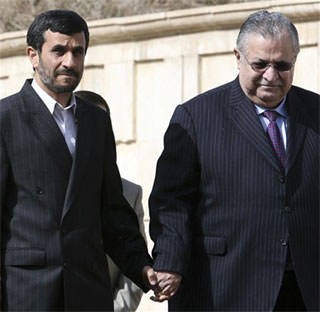
Editor’s note: This article originally appeared Monday in The Independent.
The Iranian President Mahmoud Ahmadinejad made an unprecedented visit to Baghdad yesterday, demonstrating Iran’s powerful influence in Iraq since the US overthrew Saddam Hussein five years ago.
In contrast to President George Bush’s furtive visits to US military bases in Iraq, Mr Ahmadinejad’s delegation seemed to take pleasure in pre-announcing the two-day visit, landing at Baghdad airport in daylight and driving by road to the Green Zone.
The Iranian leader met first with the Iraqi President Jalal Talabani just outside the Green Zone and later held a joint press conference with the Iraqi Prime Minister Nouri al-Maliki. Rejecting the American allegation that Iran is arming Iranian-controlled units of the Mehdi Army Shia militia which attack US forces, Mr Ahmadinejad said: “We tell Mr Bush that accusing others will increase the problems of America in the region and will not solve them. The Americans have to understand the facts of the region. Iraqi people do not like America.”
Iran was delighted to see the overthrow of Saddam Hussein, who had invaded Iran in 1980 and fought a bloody eight-year war against it, by the US in 2003. It was also very pleased to see its fellow Shia, some 60 per cent of the Iraqi population, take power in elections in 2005. In contrast to Iraq’s Sunni Arab neighbours, Iran supports the present government in Baghdad.
“A visit to Iraq without the dictator is a truly happy one,” Mr Ahmadinejad said yesterday. “A developed, powerful and united Iraq is to the advantage of everyone.”
It is true that Iran wants Iraq to stay united under a government led by the religious parties, all of whom have links to Tehran fostered during years of exile. Iran is also determined that Iraq should never become a platform for the US from which attacks can be made on Iran.
But while Iran officially wants the US to leave Iraq, the presence of an 150,000-strong American army next door to Iran places a powerful card in Iranian hands. Any US military action against Iran would lead to Iranian retaliation using its many allies inside Iraq. It is unlikely, despite Mr Ahmadinejad’s words yesterday, that Iran ever wants Iraq to again be a powerful state capable of fighting Iran.
The Iraqi government has long been trying to foster better relations between Tehran and Washington, though with only limited success. The US Defence Secretary Robert Gates has made clear that he is opposed to a US military assault on Iran, thereby easing relations between the two states. The National Intelligence Estimate, the collective wisdom of the American intelligence agencies, cut the ground from under the feet of hawks in the administration by saying last December that Iran had ceased its efforts to develop a nuclear bomb.
There were scattered demonstrations in Sunni Arab parts of Iraq yesterday against the Iranian leader’s visit. The Sunni community is deeply suspicious of the influence of Iran over the government of Mr Maliki, whom many Sunnis see as an Iranian pawn.
Iran retains nuclear weapons ambitions and there is a “strong possibility” it could be in a position to quickly make a nuclear bomb by 2015, [Britain’s] parliamentary Foreign Affairs Committee said yesterday. In a report, the committee said sanctions were unlikely to persuade Iran to halt work that could be aimed at building nuclear weapons, and that a military strike on Iranian nuclear facilities was also unlikely to work.
It urged Britain to press Washington to talk to Tehran directly about its nuclear programme.
Your support matters…Independent journalism is under threat and overshadowed by heavily funded mainstream media.
You can help level the playing field. Become a member.
Your tax-deductible contribution keeps us digging beneath the headlines to give you thought-provoking, investigative reporting and analysis that unearths what's really happening- without compromise.
Give today to support our courageous, independent journalists.
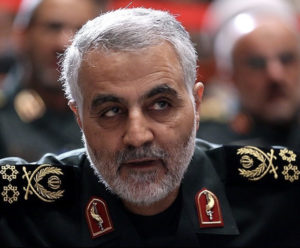

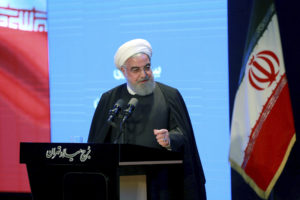

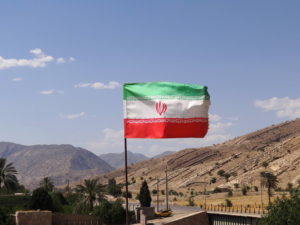
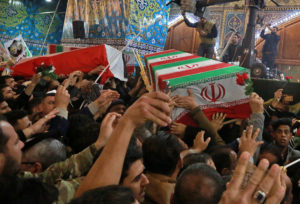
You need to be a supporter to comment.
There are currently no responses to this article.
Be the first to respond.